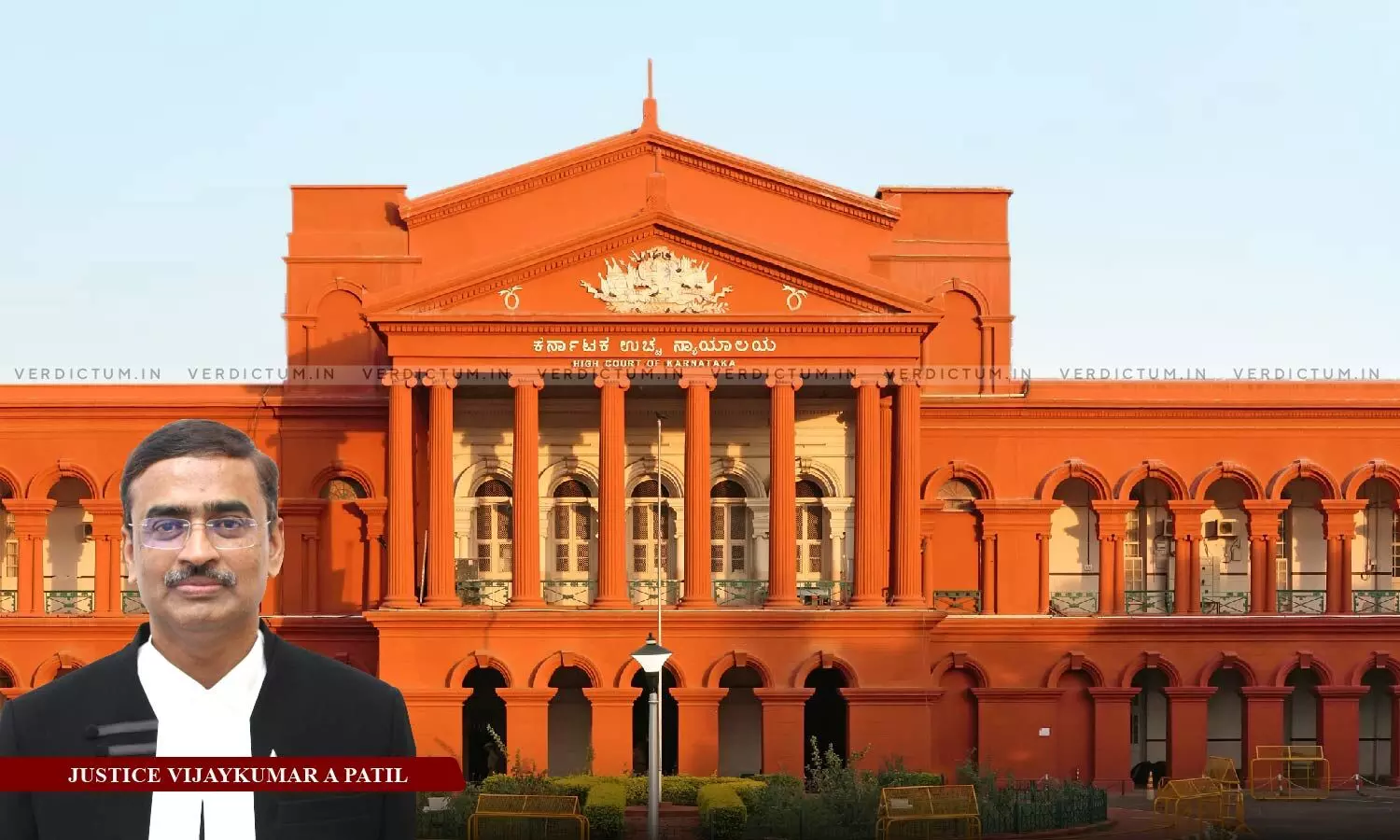
Justice Vijaykumar A. Patil, Karnataka High Court
Google India Cannot Be Sued For Defamatory Content Posted By Google LLC Or YouTube: Karnataka High Court
 |
|A defamation suit was filed against 21 defendants, including Google India, seeking a permanent injunction for allegedly posting defamatory content, Google India challenged its inclusion in the suit.
The Karnataka High Court has ruled that Google India Private Limited cannot be held liable for allegedly defamatory content posted or broadcast on platforms such as Google or YouTube, which are operated by Google LLC, a separate legal entity.
A Bench of Justice Vijaykumar A Patil held, “I am of the considered view that both the entities are distinct legal entities, and if any posting, broadcasting, web-hosting by Google LLC., and YouTube, the petitioner cannot be sued.”
Advocate Mrinal Shankar appeared for the Petitioner and Advocate Akarsh Kanade appeared for the Respondent.
Background
The original defamation suit was filed in 2017 by a plaintiff who sought a permanent injunction against 21 defendants, including Google India. The suit aimed to prevent them from posting or broadcasting photos, videos, or making defamatory remarks that could damage the plaintiff’s reputation across websites, news channels, and newspapers.
In this context, Google India had approached the High Court challenging a February 2019 order passed by the LXIV Additional City Civil and Sessions Judge, Bengaluru, which had declined to remove it as a defendant in the suit. The company sought relief under Order I Rule 10(2) of the Civil Procedure Code, which permits courts to strike out or add parties as necessary.
Google India argued that it had filed a comprehensive written statement denying all allegations, emphasizing that the plaint lacked any specific claims or examples linking it to the alleged defamatory content. It asserted that the plaintiff had wrongly described it as the owner and operator of Google and YouTube, despite being a separate legal entity incorporated under the Companies Act, 1956, and a wholly-owned subsidiary of Google LLC. Google India further clarified that its role is limited to acting as a non-exclusive reseller of online ad space in India through the AdWords program, and it has neither created, hosted, nor published any content concerning the plaintiff.
Finding
The Court observed that the plaint did not identify any specific defamatory material that was published or hosted by Google India. It emphasized that no concrete link had been established between the alleged defamatory content and the petitioner.
Referring to the Supreme Court’s judgment in MJ Zakharia Sait vs. TM Mohammed & Ors. (1990), the High Court reiterated that a defamation suit must clearly specify the defamatory statements, identify the person who made them, and state where they were published.
In this case, the Court found that the plaint lacked such clarity and specificity with respect to Google India. It concluded that, in the absence of any concrete allegations or pleadings against the company, the defamation suit could not be maintained against it.
The bench further took note of the Google Terms of Service placed on record by Google India, which clarified the distinct roles and identities of Google India, Google LLC, and YouTube. Based on this, the Court acknowledged that any content on Google or YouTube platforms would be under the domain of Google LLC or YouTube, and not Google India.
The Court also observed that in similar defamation matters, trial courts had already removed Google India from the list of defendants due to its lack of involvement in content publishing.
Accordingly, the High Court set aside the trial court’s 2019 order that had refused to remove Google India from the defamation suit. It allowed Google India's application (IA No. 4) filed under Order I Rule 10(2) of the Civil Procedure Code and directed that Google India, listed as defendant no. 6, be deleted from the array of parties in the suit numbered O.S. No. 6216/2017.
In conclusion, the Karnataka High Court held that Google India is not a necessary party to the defamation proceedings, as no defamatory content was shown to have been published or hosted by it, and it is legally distinct from Google LLC and YouTube, the entities that operate the platforms where the content allegedly appeared.
Cause Title: Google India Private Limited v. Nayana Krishna, [2025:KHC:24974]
Appearance:
Petitioner: Advocates Mrinal Shankar, Aditya Vikram Bhat
Respondent: Advocate Akarsh Kanade